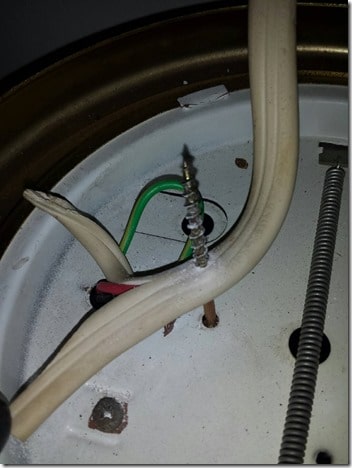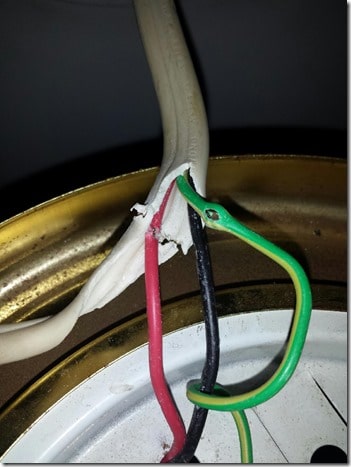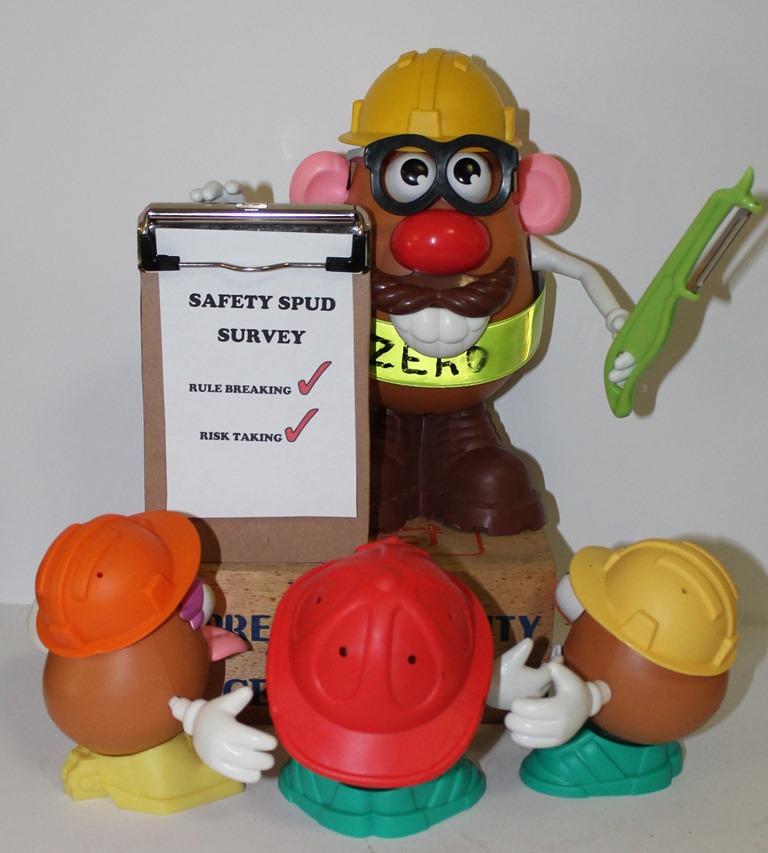15 Safety Precautions Electricians or Home Owners Need To Take When Working With Electricity
I found this in my roof today!!


Click HERE for Electrical Equipment Risk Assessment Forms and Checklists
SHOCKING! ELECTRICAL SAFETY PHOTOS HERE
ELECTRICAL SAFETY SLOGANS HERE
ELECTRICAL SAFETY FORMS AND FREE DOWNLOADS HERE
It’s vitally important to take safety precautions when working with electricity. Safety must not be compromised and some ground rules need to be followed first. The basic guidelines regarding safe handling of electricity documented below will help you while working with electricity.
1. Avoid water at all times when working with electricity. Never touch or try repairing any electrical equipment or circuits with wet hands. It increases the conductivity of electric current.
2. Never use equipment with frayed cords, damaged insulation or broken plugs.
3. If you are working on any receptacle at your home then always turn off the mains. It is also a good idea to put up a sign on the service panel so that nobody turns the main switch ON by accident.
4. Always use insulated tools while working.
5. Electrical hazards include exposed energized parts and unguarded electrical equipment which may become energized unexpectedly. Such equipment always carries warning signs like “Shock Risk”. Always be observant of such signs and follow the safety rules established by the electrical code followed by the country you’re in.
6. Always use appropriate insulated rubber gloves and goggles while working on any branch circuit or any other electrical circuit.
7. Never try repairing energized equipment. Always check that it is de-energized first by using a tester. When an electric tester touches a live or hot wire, the bulb inside the tester lights up showing that an electrical current is flowing through the respective wire. Check all the wires, the outer metallic covering of the service panel and any other hanging wires with an electrical tester before proceeding with your work.
8. Never use an aluminium or steel ladder if you are working on any receptacle at height in your home. An electrical surge will ground you and the whole electric current will pass through your body. Use a bamboo, wooden or a fibreglass ladder instead.
9. Know the wire code of your country.
10. Always check all your GFCI’s once a month. A GFCI (Ground Fault Circuit Interrupter) is a RCD (Residual Current Device). They have become very common in modern homes, especially damp areas like the bathroom and kitchen, as they help avoid electrical shock hazards. It is designed to disconnect quickly enough to avoid any injury caused by over current or short circuit faults.
11. Always use a circuit breaker or fuse with the appropriate current rating. Circuit breakers and fuses are protection devices that automatically disconnect the live wire when a condition of short circuit or over current occurs. The selection of the appropriate fuse or circuit breaker is essential. Normally for protection against short circuits a fuse rated of 150% of the normal circuit current is selected. In the case of a circuit with 10 amperes of current, a 15 ampere fuse will protect against direct short circuits whereas a 9.5 amperes fuse will blow out.
12. Working outside with underground cabling can be dangerous. The damp soil around the cable is a good conductor of electricity and ground faults are quite common in the case of underground cabling. Using a spade to dig at the cable can damage the wiring easily so it is better to dig at the cable by hand while wearing insulated gloves.
13. Always put a cap on the hot/live wire while working on an electric board or service panel as you could end up short circuiting the bare ends of the live wire with the neutral. The cap insulates the copper ends of the cable thus preventing any kind of shock even if touched mistakenly.
14. Take care while removing a capacitor from a circuit. A capacitor stores energy and if it’s not properly discharged when removed it can easily cause an electric shock. An easy way to discharge low voltage capacitor is that after removal from the circuit is to put the tip of two insulated screw drivers on the capacitor terminals. This will discharge it. For high voltage ones a 12 Volts light bulb can be used. Connecting the bulb with the capacitor will light up the bulb using up the last of the stored energy.
15. Always take care while soldering your circuit boards. Wear goggles and keep yourself away from the fumes. Keep the solder iron in its stand when not in use; it can get extremely hot and can easily cause burns.
Working with electricity can be dangerous, so it’s important to take safety precautions to protect yourself and others. Here are some other safety tips to keep in mind when working with electricity:
- Always turn off the power source before starting any electrical work. This includes turning off the circuit breaker or unplugging the device.
- Wear personal protective equipment (PPE) such as safety glasses, rubber gloves, and non-conductive shoes.
- Use tools that are specifically designed for electrical work and ensure they are in good condition.
- Avoid working in wet or damp conditions or with wet hands.
- Do not touch electrical parts or wires with bare hands, use tools or gloves instead.
- Keep your work area clean and free from any flammable or combustible materials.
- Always follow proper wiring procedures, and use proper insulation techniques.
- Do not work on live circuits, even if you are experienced.
- Make sure that any electrical work is done according to local codes and regulations.
- If you are unsure of what to do, consult with a qualified electrician or seek professional advice.
Remember, working with electricity can be dangerous, so always take the necessary precautions to keep yourself and others safe.
MORE ELECTRICAL and ELECTRICIAN SAFETY RESOURCES
More Electrical Safety Articles
Electrical Safety Risk Assessment Forms
Homeowner Electrical Safety • Safety Risk
Quick Tips for Preventing Electrical Issues in the Workplace • Safety …
Quick Tips for Preventing Electrical Issues in the Workplace Guest post Walking the factory floor, you see a spilled gallon of motor oil and know …
Electrical Safety at Home • Safety Risk
Electrical Safety at Home Guest Post Every year we see thousands of people are electrocuted or injured in their homes due to electricity-related …
Who Is a “Competent Person” in Testing and Tagging Electrical …
In Each state of Australia there are booklets and fact sheets pertaining to Electrical Appliance safety and its requirements under statutory law.
Electrical hazards at work and how to prevent them • Safety Risk
Electrical hazards at work account for a large percentage of accidents when equipment isn’t in working order. Read on for some common …



Kenny says
Thanks for this nice advice.
Rob Long says
Best advice, don’t copy the PM of Australia: https://www.pedestrian.tv/news/pm-scott-morrison-welding/
Nigel says
Thanks for sharing these safety precautions. I will take note of it.
Kobimtoochukwu Chinedu says
this helped me a lot. thank you
watson says
Your advice is awesome. We should all follow these suggestions. Security should never be compromised. Your advice on safety is ideal for everyone.